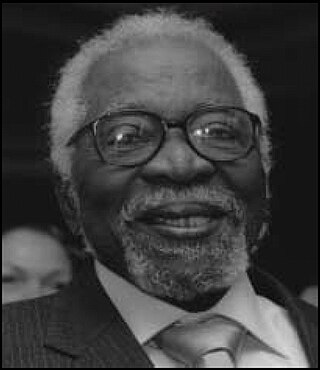Related Research Articles
Psychosomatic medicine is an interdisciplinary medical field exploring the relationships among social, psychological, behavioral factors on bodily processes and quality of life in humans and animals.
Medical humanities is an interdisciplinary field of medicine which includes the humanities, social science and the arts and their application to medical education and practice.

Suicide prevention is a collection of efforts to reduce the risk of suicide. Suicide is often preventable, and the efforts to prevent it may occur at the individual, relationship, community, and society level. Suicide is a serious public health problem that can have long-lasting effects on individuals, families, and communities. Preventing suicide requires strategies at all levels of society. This includes prevention and protective strategies for individuals, families, and communities. Suicide can be prevented by learning the warning signs, promoting prevention and resilience, and committing to social change.

Medical education is education related to the practice of being a medical practitioner, including the initial training to become a physician and additional training thereafter.
Medical model is the term coined by psychiatrist R. D. Laing in his The Politics of the Family and Other Essays (1971), for the "set of procedures in which all doctors are trained". It includes complaint, history, physical examination, ancillary tests if needed, diagnosis, treatment, and prognosis with and without treatment.
A mental health professional is a health care practitioner or social and human services provider who offers services for the purpose of improving an individual's mental health or to treat mental disorders. This broad category was developed as a name for community personnel who worked in the new community mental health agencies begun in the 1970s to assist individuals moving from state hospitals, to prevent admissions, and to provide support in homes, jobs, education, and community. These individuals were the forefront brigade to develop the community programs, which today may be referred to by names such as supported housing, psychiatric rehabilitation, supported or transitional employment, sheltered workshops, supported education, daily living skills, affirmative industries, dual diagnosis treatment, individual and family psychoeducation, adult day care, foster care, family services and mental health counseling.
Adolescent medicine also known as adolescent and young adult medicine is a medical subspecialty that focuses on care of patients who are in the adolescent period of development. This period begins at puberty and lasts until growth has stopped, at which time adulthood begins. Typically, patients in this age range will be in the last years of middle school up until college graduation. In developed nations, the psychosocial period of adolescence is extended both by an earlier start, as the onset of puberty begins earlier, and a later end, as patients require more years of education or training before they reach economic independence from their parents.
Psychiatric rehabilitation, also known as psych social rehabilitation, and sometimes simplified to psych rehab by providers, is the process of restoration of community functioning and well-being of an individual diagnosed in mental health or emotional disorder and who may be considered to have a psychiatric disability.
Loren Richard Mosher was an American psychiatrist, clinical professor of psychiatry, expert on schizophrenia and the chief of the Center for Studies of Schizophrenia in the National Institute of Mental Health (1968–1980). Mosher spent his professional career advocating for humane and effective treatment for people diagnosed as having schizophrenia and was instrumental in developing an innovative, residential, home-like, non-hospital, non-drug treatment model for newly identified acutely psychotic persons.

Narrative Medicine is the discipline of applying the skills used in analyzing literature to interviewing patients. The premise of narrative medicine is that how a patient speaks about his or her illness or complaint is analogous to how literature offers a plot with characters and is filled with metaphors, and that becoming conversant with the elements of literature facilitates understanding the stories that patients bring. Narrative Medicine is a diagnostic and comprehensive approach that utilizes patients' narratives in clinical practice, research, and education to promote healing. Beyond attempts to reach accurate diagnoses, it aims to address the relational and psychological dimensions that occur in tandem with physical illness. Narrative medicine aims not only to validate the experience of the patient, it also encourages creativity and self-reflection in the physician.

Mental health literacy has been defined as "knowledge and beliefs about mental disorders which aid their recognition, management and prevention. Mental health literacy includes the ability to recognize specific disorders; knowing how to seek mental health information; knowledge of risk factors and causes, of self-treatments, and of professional help available; and attitudes that promote recognition and appropriate help-seeking". The concept of mental health literacy was derived from health literacy, which aims to increase patient knowledge about physical health, illnesses, and treatments.
Psychiatry is the medical specialty devoted to the diagnosis, prevention, and treatment of deleterious mental conditions. These include various matters related to mood, behaviour, cognition, and perceptions.

Patricia E. Deegan is an American disability-rights advocate, psychologist and researcher. She has been described as a "national spokesperson for the mental health consumer/survivor movement in the United States." Deegan is known as an advocate of the mental health recovery movement and is an international speaker and trainer in the field of mental health.
The primary care behavioral health (PCBH) consultation model is a psychological approach to population-based clinical health care that is simultaneously co-located, collaborative, and integrated within the primary care clinic. The goal of PCBH is to improve and promote overall health within the general population. This approach is important because approximately half of all patients in primary care present with psychiatric comorbidities, and 60% of psychiatric illness is treated in primary care.
Dinesh Kumar Makhan Lal Bhugra is a professor of mental health and diversity at the Institute of Psychiatry at King's College London. He is an honorary consultant psychiatrist at the South London and Maudsley NHS Foundation Trust and is former president of the Royal College of Psychiatrists. He has been president of the World Psychiatric Association and the President Elect of the British Medical Association.
Rachel McDougall Jenkins is a professor of epidemiology and international mental health policy at the Institute of Psychiatry, King's College London, director of the World Health Organization (WHO) Collaborating Centre and a visiting professor at the London School of Hygiene & Tropical Medicine.
Patricia A. Berglund is a researcher at the University of Michigan's Institute for Social Research. She was included in the 2014, 2015 and 2016 Clarivate Analytics lists of "highly cited researchers" in the fields of psychiatry and psychology.
Charles L. Raison is an American psychiatrist and professor of psychiatry at the University of Wisconsin-Madison School of Medicine and Public Health as well as the Mary Sue and Mike Shannon Chair for Healthy Minds, Children & Families and Professor with the School of Human Ecology in Madison, Wisconsin.
Julia Rucklidge is a Canadian-born clinical psychologist who is the director of the Mental Health and Nutrition Research Group at the University of Canterbury in New Zealand. Her research has centered on mental health and nutrition.

Tolani Asuni, was a Nigerian medical doctor and psychiatrist. Asuni was one of the first indigenous psychiatrists in Nigeria and is credited with promoting mental health in Africa. He was educated in Nigeria and the West and returned to Nigeria for his professional life. Asuni became the foundation professor of psychiatry at University College Hospital Ibadan where he worked from 1957 to 1976 as the Medical Superintendent of Aro Medical Hospital. From 1979 to 1984, he was the Director of the United Nations Social Defence Research Institute in Rome, Italy. Asuni was a suicidologist and forensic psychiatrist. His 1975 textbook, Mental Health and Disease in Africa, was used for many years by undergraduates and graduate students of mental health. Asuni helped to improve global understandings of mental health in Africa and abroad and he promoted the universality of mental health conditions.
References
- ↑ Alexander, M; Hall, MN; Pettice, YJ (1994). "Cinemeducation: An innovative approach to teaching psychosocial medical care". Family Medicine. 26 (7): 430–3. PMID 7926359.
- ↑ Alexander, Matthew; Lenahan, Patricia; Pavlov, Anna, eds. (2005). Cinemeducation: a comprehensive guide to using film in medical education. Abingdon: Radcliffe Medical Press. ISBN 978-1-85775-692-0.
- ↑ Alexander, Matthew (2002). "The Doctor: A Seminal Video for Cinemeducation" (PDF). Literature and the Arts in Medical Education. 34 (2): 92–94. PMID 11874031.
- ↑ Alexander, Matthew; Waxman, Dael (2000). "Cinemeducation: Teaching Family Systems Through the Movies". Families, Systems and Health . 18 (4): 455–466. doi:10.1037/h0091869.
- ↑ DiBartolo, Mary C.; Seldomridge, Lisa A. (2009). "Cinemeducation: Teaching End-of-Life Issues Using Feature Films". Journal of Gerontological Nursing . 35 (8): 30–36. doi:10.3928/00989134-20090706-06. PMID 19681561.
- ↑ Lumlertgul, Nuttha; Kijpaisalratana, Naruchorn; Pityaratstian, Nuttorn; Wangsaturaka, Danai (2009). "Cinemeducation: A Pilot Student Project Using Movies to Help Students Learn Medical Professionalism". Medical Teacher . 31 (7): e327–e322. doi: 10.1080/01421590802637941 . PMID 19811142.
- ↑ Dave, Subodh; Tandon, Kopal (2011). "Cinemeducation in Psychiatry". Advances in Psychiatric Treatment. 17 (4): 301–208. doi: 10.1192/apt.bp.107.004945 .
- ↑ Kuhnigk, Olaf; Schreiner, Julia; Reimer, Jens; Emami, Roya; Naber, Dieter; Harendza, Sigrid (2012). "Cinemeducation in Psychiatry: A Seminar in Undergraduate Medical Education Combining a Movie, Lecture, and Patient Interview". Academic Psychiatry. 36 (3): 205–210. doi:10.1176/appi.ap.10070106. PMID 22751822. S2CID 22472779.
- ↑ Gorring, Helene; Loy, John; Spring, Hannah (2014). "Cinemeducation: Using Film as an Educational Tool in Mental Health Services". Health Information & Libraries Journal. 31 (1): 84–88. doi: 10.1111/hir.12052 . PMID 24751232.